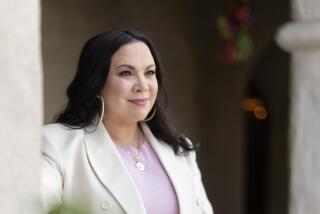The Price and Timing of the Ticket : When the language of a multitude of cultures is universal, then there will be less need for separate ethnic studies departments.
In the 1970s, the late Thurgood Marshall delivered a keynote address to the National Bar Assn. Like its medical counterpart, the NMA, the NBA (black lawyers sometimes jokingly refer to it as the other NBA) was established because in their early histories the American Bar and Medical associations were not eager to have black members. The African-American professional organizations provided a needed forum for collegial exchange and national, industrywide networking. (Today, many black doctors and lawyers belong both to the black and the integrated associations.)
One reporter was bothered at what he saw as voluntary segregation on the part of these black professionals, so at a press conference following Marshall’s speech, he asked: “Why, at this late date, is there a separate bar association for blacks?”
“The answer is simple,” the feisty Supreme Court justice shot back. “It’s not that late.”
Recent events surrounding UCLA’s refusal to establish a Chicano studies department probably have some people asking essentially the same question the reporter asked Marshall, and many students’ answers would probably echo his.
In a state where much of the indigenous population has, historically, been Mexican, and where the largest numbers of immigrants still continue to be, it is not unreasonable to expect that UCLA would wish to examine how Mexican culture has influenced the growth and expansion of California and Southern California in particular. This is especially important as our statewide demographics continue to shift. Chicano studies should not be taken only by Chicanos interested in becoming more familiar with their own culture; majors in economics, history, law and the arts would benefit, too.
For example, the agricultural industry that flourishes here and contributes so much to the state economy is heavily dependent on migrant labor, much of it from Mexico. The historic relationship of farmer to land is something that is often overlooked in modern America, where most residents now live in or near cities, and the government has allowed small family farms to be swallowed up by agri-conglomerates. The clash of those two cultures--the peasant’s intimate daily contact with the plot that sustains him and the businessman farmer’s need for cost-efficient mass production--is at the heart of the struggle that the late Cesar Chavez fought on behalf of farm workers. It affects not only farmers who must address the issue, but also touches legal issues (child labor laws, zoning ordinances), medical concerns (especially when communicable diseases exacerbated by poverty, such as tuberculosis, can place an entire community at risk) and sparks political debates (are undocumented workers entitled to the same protections as U.S. residents--why or why not?) Chicano studies would--and should--not benefit Chicanos exclusively.
The same argument was posed nearly 20 years ago when schools debated the wisdom of classes or departments in black studies. Nearly two decades later, several of these departments have contributed major finds that have been incorporated into campus life. At Yale, students of all races are able to pore
over the papers of black abolitionist Frederick Douglass and learn, in his own words, why slavery
was injuring free white Americans as well as enslaved black ones. At Princeton, American literature majors were delighted to discover that one of their then-professors had unearthed the first chronicle written by an African-American woman. Integrated classes in a Boston-area school were intrigued
with the comparison of antebellum Southern life depicted in Margaret Mitchell’s “Gone With The Wind” and in Margaret Walker’s “Jubilee,” which took a similarly epic look at plantation life--from a slave’s perspective.
I’m not sorry that I was well-schooled in the works of the dead white males who are being debated so hotly now. I spent many hours immersed in Dickens, Thackeray, Hawthorne and Wordsworth, and while I don’t draw upon them consciously on a daily basis, they do float back to me when I need them, so that when someone makes a literary reference, I understand the context and am not left drawing a mental blank. Dead white guys have their place in any serious curriculum, but their works should be complemented with other, equally important perspectives.
The bottom line is, if we fully integrate the study of the lives and work of racial and ethnic minorities and women into the daily curricula of America’s universities, there would be less need for separate departments. If we studied Jacob Lawrence with Thomas Hart Benton, Ralph Ellison with Upton Sinclair, Carlos Fuentes with John Steinbeck, we’d probably all be better off. But it would be nice if it worked both ways--if when someone opines that it’s a “far, far better thing I do” (Dickens), we could agree that sometimes, such heroism is simply “the price of the ticket” (Baldwin).
When we can all speak each other’s cultural languages with mutual fluency, perhaps the date will be late enough that we can retire separate and sometimes equal ethnic studies departments.
More to Read
Get the L.A. Times Politics newsletter
Deeply reported insights into legislation, politics and policy from Sacramento, Washington and beyond. In your inbox three times per week.
You may occasionally receive promotional content from the Los Angeles Times.










